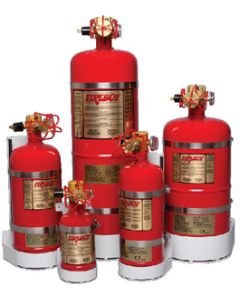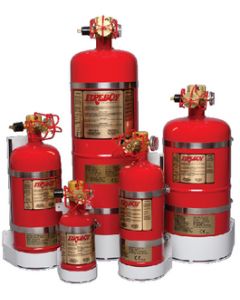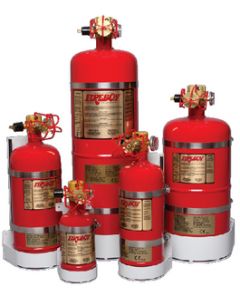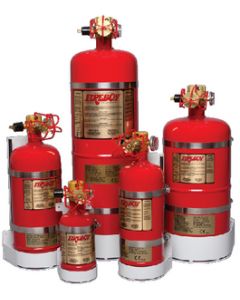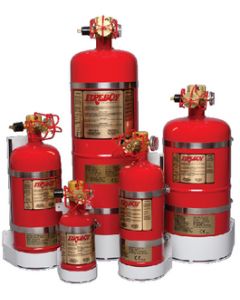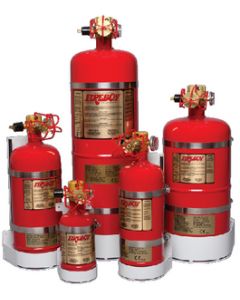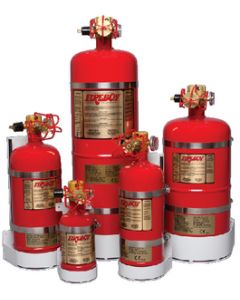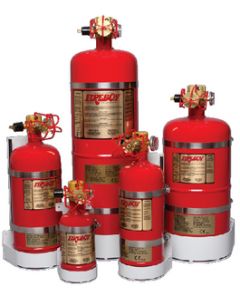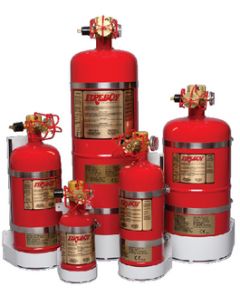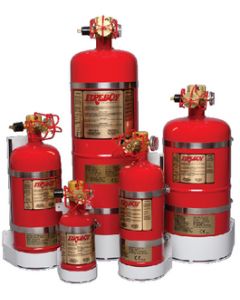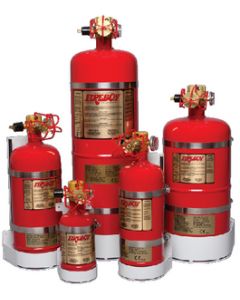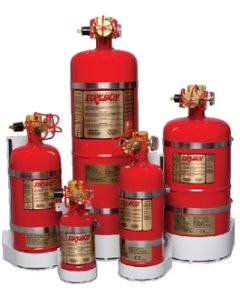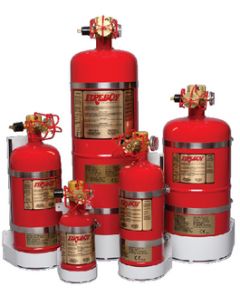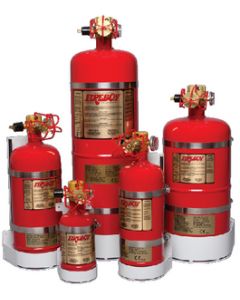Boat Fire Suppression Systems How-Tos
How to Prevent a Fire On Board My Boat
It would seem strange that people traveling on a boat would need to fear fire. After all, a boat is usually surrounded by water. But drawing water for dousing a fire is a time consuming process, and fire is never that patient. Moreover, water is not always the right means to extinguish or suppress the different types of fires on vessels. People on boats are not able to run or hide anywhere from a fire since boats are constructed with flammable materials, and this is the reason fire suppression and extinguisher systems are mandatory on boats in some parts of the world.
There are two aspects here. One is to prevent a fire. The second is to suppress it to the extent that it extinguishes. It is also necessary to know the possible causes of fires on boats and take precautions. Usually fires are caused by faults in air conditioning, switch panels, or other electrical connections on the boat. Alternately, a fire may break out on the boat because the engine or engine room gets too hot. The third most common cause for fires on boat is leakage of fuel, or carelessness with some fire causing device or material on the boat.
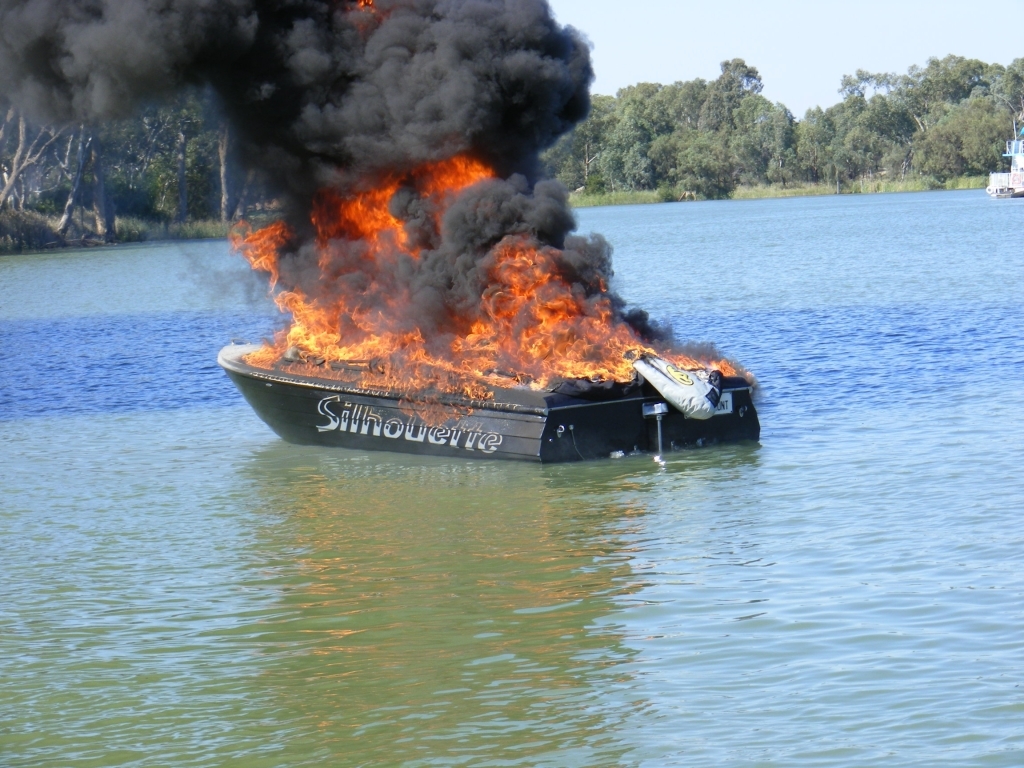 There are ways to check the continuity of the electrical connections using a multi-meter. Periodically changing the wiring and switches also helps to ensure that there are no sparks or short circuits. Boating repair professionals should be used to check the electrical systems and appliances, boat engines, fuel tanks, etc. Annual maintenance that covers such services can help to prevent any fire mishap on the boat. As to fire accidents on a boat due to other reasons, people should be careful with anything that can start a fire on the boat. That caution starts with gasoline to run the boat. Refueling the boat using portable containers can increase the risk of fire through spillage or fumes. Some drops of gasoline may spill on boat's floor while refueling. Thereafter even static electricity may be sufficient to start an uncontrollable fire with these few drops or fumes. Such fire can engulf the boat and even other boats in its vicinity. Another precaution to take would be to install smoke detectors for warnings. Such detectors are essential in the engine room, and cabin rooms.
There are ways to check the continuity of the electrical connections using a multi-meter. Periodically changing the wiring and switches also helps to ensure that there are no sparks or short circuits. Boating repair professionals should be used to check the electrical systems and appliances, boat engines, fuel tanks, etc. Annual maintenance that covers such services can help to prevent any fire mishap on the boat. As to fire accidents on a boat due to other reasons, people should be careful with anything that can start a fire on the boat. That caution starts with gasoline to run the boat. Refueling the boat using portable containers can increase the risk of fire through spillage or fumes. Some drops of gasoline may spill on boat's floor while refueling. Thereafter even static electricity may be sufficient to start an uncontrollable fire with these few drops or fumes. Such fire can engulf the boat and even other boats in its vicinity. Another precaution to take would be to install smoke detectors for warnings. Such detectors are essential in the engine room, and cabin rooms.
The need to extinguish and suppress fire arises once the fire starts. Smoke is the first sign. Installing a fire suppression and extinguishing systems is critical. Installation of such systems brings down the boat insurance premiums. Using the wrong type of fire extinguisher on a particular type of fire can increase the problem. For example, throwing water on a gasoline related fire or electrical short circuit related fire is simply not the right thing to do. Therefore, fires have been classified into three different categories, i.e., A, B, and C. Type A fire is a typical fire involving most of the combustible materials. Oil, gasoline, grease and the like cause the Type B fire. Type C fire is due to short circuits and other electrical faults. Luckily, there are fire extinguishers that can fight against any of the three types of fires. These extinguishers are referred to as multipurpose fire extinguishers and their containers have all the three letters mentioned on them.
Motor boats usually carry a variety of multipurpose fire extinguishers, which have a rating system. The ratings are on the effectiveness of the material used against the different types of fires. The numbers before the letters A, B, and C, therefore, indicate how effective the material in those fire extinguishers is against different fire types. Usually, these fire extinguishers contain a dry compound that prevents oxygen from reaching the fire. The extinguisher's plume is designed to be directed at the base of the fire to achieve the best results. The problem with multipurpose fire extinguishers is that they can cause damage to various parts of the boat.
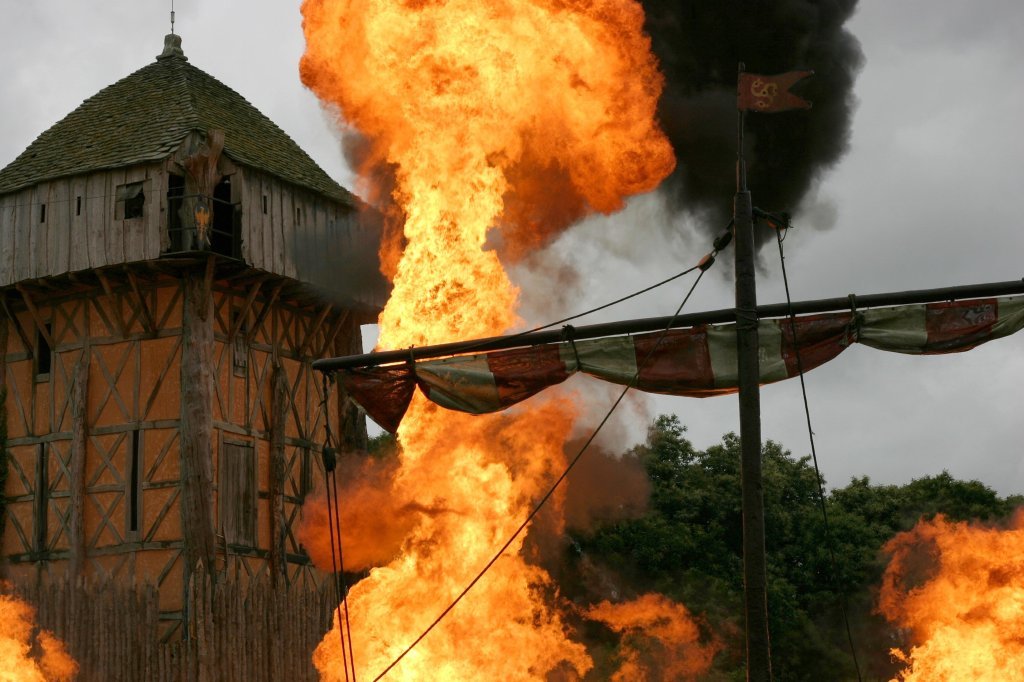 The other types of fire extinguishers are of gaseous materials. Such examples include those that use CO2, FE-241, FM-200 and/or Halon. Gaseous type extinguishers are less useful than ABC fire extinguishers for fighting a fire on board. ABC fire extinguishers, however, are ideal for cabin fires. For fires in the engine room, the gaseous types are better, as they can be discharged quickly through the fire port leading into the engine room. It is not wise to open the door or latch hood to the engine compartment if there is a fire simply because that results in an increase in the supply of oxygen to the fire.
The other types of fire extinguishers are of gaseous materials. Such examples include those that use CO2, FE-241, FM-200 and/or Halon. Gaseous type extinguishers are less useful than ABC fire extinguishers for fighting a fire on board. ABC fire extinguishers, however, are ideal for cabin fires. For fires in the engine room, the gaseous types are better, as they can be discharged quickly through the fire port leading into the engine room. It is not wise to open the door or latch hood to the engine compartment if there is a fire simply because that results in an increase in the supply of oxygen to the fire.
ABC fire extinguishers that are portable should be ideally located outside engine rooms. It is possible to control the fire by installing either a portable gas or fixed fire extinguisher inside the engine room. Because of such installations, the need to pull the hatch is reduced. Ideal solution, however, is an automatic fire extinguishing system. It can detect a fire long before others can see smoke. It works on the basis of room temperature. Depending on the temperature of the compartment, the detector can determine if there is a fire and then act accordingly. Once it establishes the probability, it gets down to business of quelling that spark or fire.
Conclusion:
As can be seen, there is no single solution for fire prevention. Boat owners and other crew members should undergo training on fire control. In emergencies, such training will be useful. The most important thing is not to panic. Training helps to select the right type of fire extinguisher against the fire almost instinctively and saves precious time. American Boat & Yacht Council has put forth important guidelines for fighting fires on marine vessels and preventing accidents. Having portable fire extinguishers of the ABC type is highly recommended.
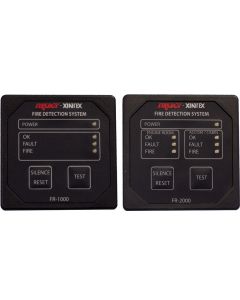 Fire Detection System - 1 or 2 ZonesOut of stock
Fire Detection System - 1 or 2 ZonesOut of stock